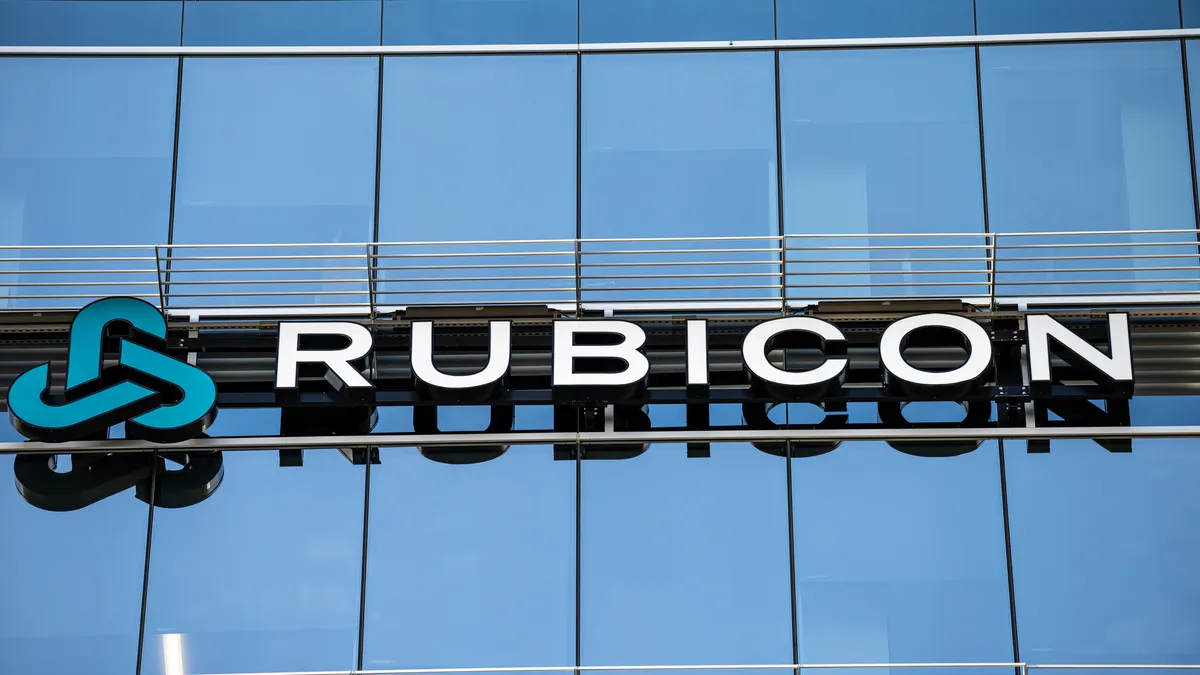Rubicon is touting recent refinancing efforts and ongoing growth in its high-margin city software business in its latest efforts to move beyond a period of financial strain after going public.
The waste broker and cloud-based software company recently said it had “successfully completed all the highest priority tasks within its strategic plan” and remains on track to generate positive earnings by the end of the year.
Executives kicked off this plan last fall after Rubicon netted lower proceeds than anticipated during the protracted process of becoming a publicly traded company. The company exited Q3 with limited cash on hand and was facing significant debt maturities in December, leading to targeted layoffs and other measures.
Now, the company has closed a new $75 million term loan (with maturities extended to June 2025), expanded credit revolver capacity by $15 million through a new $90 million line (set to mature in March 2025) and locked in another $24 million in equity financing. Rubicon has also cut expenses by an estimated $28 million on an annualized basis through May, while growing revenue and profit margins.
While some of these updates were only finalized recently, the company’s stock price remains below $1 per share. Rubicon reported receiving a notice of non-compliance from the New York Stock Exchange in late March after its stock traded below that threshold for 30 days. This started a six-month cure period that could possibly lead to the company’s stock being delisted if its share price doesn’t close at $1 or higher and show an average price at that level for a 30-day period.
Rubicon shareholders recently approved a resolution that would authorize their board of directors to implement a reverse stock split within one year and the company cited NYSE compliance as a reason to support that resolution. Rubicon declined to comment on what specific factors could prompt it to use this authorization.
“Reverse stock splits require shareholder approval and we felt it was prudent to secure this authorization as part of our scheduled annual voting process in order to maximize our optionality and flexibility,” said President and CFO Kevin Schubert in a statement, noting that companies can sometimes get an extension on the cure period. “We cannot speculate on the potential for extensions and other factors, but our team is working with the NYSE on this issue to ensure we put in the company in the best position going forward.”
The three financial analysts who cover Rubicon did not respond to requests for comment about the potential need for this move, or their views on the company’s refinancing efforts.
While the majority of Rubicon’s revenue still comes from offering waste and recycling services via third-party haulers, the company is also bullish on the potential to grow profitability though its high-margin software business.
Last Tuesday, Rubicon announced that its smart city technology had been deployed in more than 100 municipalities. The roster now includes eight of the top 20 U.S. cities by population, according to a release, such as Atlanta, Denver, Houston and Miami.
Speaking in front of municipal leaders at the company’s Next Summit that day, CEO Phil Rodoni said the company’s software-as-a-service business has grown “tremendously,” and said features like route assist came as a result of feedback from clients.
“That feedback loop is incredibly important to us,” Rodoni said. “We are a product and technology company, but those products and technologies exist because of you.”
Leaders in Rubicon’s software business announced additional features at the summit as well, including upgrades to its Rubicon Vision technology that further integrates data from camera systems into the company’s platform to simplify wiring and allow for strobe image collection, on-demand video download or event-based download.
They also announced a new billing platform integrated into the Rubicon Pro and Rubicon Smart City products. Conor Riffle, senior vice president of smart cities, noted that the company had previously integrated with municipalities’ utility billing systems to allow for billing but didn’t have the same capability for private haulers.
The beta offering would allow haulers to set up rules for route-setting based on billing information, like a customer being past due. The integrated system would also allow issues like contamination, overflowing or extended wait times to be automatically added to a customer’s bill.
“This is what we want to bring together is a fully integrated system with modules for each section of the process and digitize all of that together into one seamlessly integrated platform, which is Rubicon Pro and Rubicon Smart City,” said Ryan Alexander, vice president of product development.




















